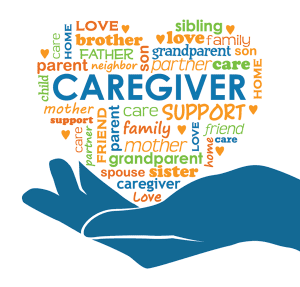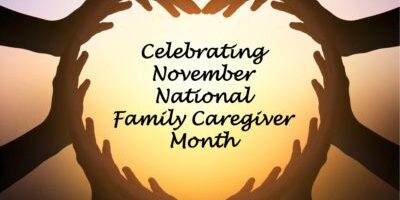
November is National Family Caregivers Month, a time dedicated to acknowledging and supporting the millions of family members and friends who selflessly care for loved ones who are aging, ill, or disabled. With over 53 million Americans providing unpaid care valued at more than $470 billion, caregivers are the primary support system for those in need, playing a vital role in both individual families and the healthcare system as a whole. For more information, visit the National Alliance for Caregiving.
Caregiving can take a significant emotional, physical, and financial toll on those who take on this responsibility. Many caregivers work full-time jobs in addition to their caregiving role, often feeling the strain of balancing these demands. With almost half of all caregivers over the age of 50, the pressures they face can impact their own health, making mental well-being support essential. Click on the link for more information.
To help caregivers stay resilient, here are a few effective strategies and resources:
- Prioritize Self-Care: Taking breaks for personal hobbies, even for short moments, can help recharge and reduce stress. For self-care tips, explore the Alzheimer’s Association Caregiver Resources.
- Combat burnout : checkout out our blog post on burnout Combat caregiver burnout (NWABA)
- Stay Connected with Others: Engaging with family, friends, or support groups helps caregivers process emotions and receive advice, often easing feelings of isolation. Find support groups at Caregiver Action Network
- Practice Mindfulness: Techniques like meditation or deep breathing can reduce immediate stress and create a sense of calm amid the demands of caregiving. Try free exercises at Headspace.com.
- Seek Professional Help: Therapists can provide caregivers with coping strategies and a safe space to navigate complex emotions. The National Institute of Mental Health offers insights on accessing mental health care.
- Utilize Respite Services: Temporary relief through respite care provides caregivers with much-needed breaks, preventing burnout. Learn more at ARCH National Respite Network.
- Washington Family Caregiver Support Program (FCSP): The Family Caregiver Support Program provides unpaid caregivers with local resources, support groups, counseling, respite care, and training to support them in their caregiving roles.
- Evergreen Caregiver Support: This organization provides online support communities, educational resources, and connections to local support groups for Washington caregivers. Learn more at Evergreen Caregiver Support.

During National Family Caregivers Month, let’s come together to show appreciation for the caregivers in our lives. Through understanding and providing resources, we can support their well-being as they continue to care for those they love.

